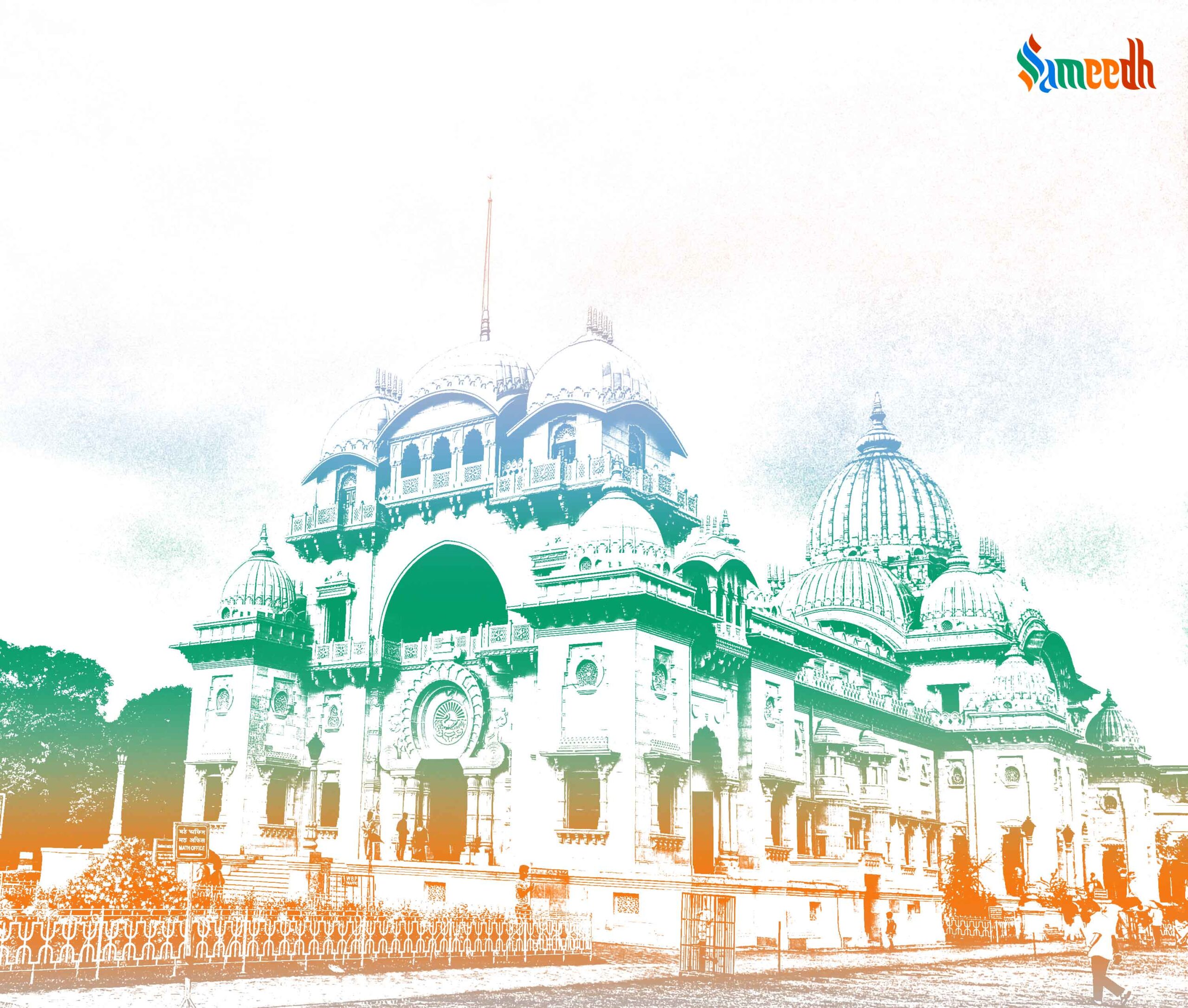This blogpost discusses the beauty, diversity and campus of Belur Math.

LOCATION
On the banks of Hooghly
Founded in 1899, Belur Math stands sprawling and tall at the banks of the Hooghly river in the district of Howrah in the state of West Bengal. The idea of Belur Muth conceptualised by Swami Vivekananda was taken forward and actualised by Swami Vijnanananda who was an architect as well as a monk and a disciple of Ramakrishna Parmahansa. The final construction of 40 acres of Belur Math was dedicated to Ramakrishna Parmahansa, Sarada Devi and Swami Vivekananda. The campus of Belur Math is home to many important and revered temples like Ramkrishna Museum, Sri Ramakrishna Temple, Swami Brahmananda’s Temple, Holy Mother’s Temple and Swami Vivekananda Temple. The Belur Math campus is known for activities of social development, medical services and spiritual activities.
MYTHOLOGY
Founded by Swami Vivekananda
The objective behind the conception of the idea of Belur Math by Swami Vivekananda was to admit young students who were spiritually inclined and wanted to become associated with Ramakrishna Mission as Sanyaasis. The foundation of Belur Math was inspired by the travels of Swami Vivekananda across India and the world. The idea he came up with was conceptualised with the vision to create a world and institution where everyone was welcome and felt at home due to a holistic and diverse architecture and design of the campus.
SIGNIFICANCE
A place for everyone
The design and the idea of Belur Math is based on the inspiration and foundation of creating a wonderfully inclusive world where anyone can learn about spirituality and the teachings of the Ramakrishna Movement. The beauty and uniqueness of Belur Math can be witnessed by every important temple in the campus. For example, the Sri Ramakrishna Temple is designed in such a way that it looks like a pilgrim and holy site for every religion. The architecture allows one to feel connected to their own religion. It is designed in this way to fulfil the objective and vision of the founders to create the campus and temples which can symbolise unity of all the religions.
ARCHITECTURE
A diverse and inclusive architecture
The mission and vision of Belur Math is focussed on creating a world which can be synonymous to being called a, ‘Symphony of Architecture’. The Sri Ramakrishna Temple’s architecture is strategically designed in such a way that it looks similar to a temple, church and mosque from different angles. This feature was thought of and curated to meet the vision of the founders. The different structures in Belur Math have components of Buddhism also. The entry point and gate of the temple showcases inspiration from Buddhist architecture with beautiful and elaborate Stupa style architecture.
The domes of the Sir Ramakrishna Temple is similar to domes in the Mughal architectural structures in India.
Belur Math, an evidence and celebration of diversity and faith
With different temples and statue of Sri Ramakrishna, the concept and vision of Belur Math symbolises the unique demography of India as a religiously diverse world and meets the vision of the founder of the idea of Belur Math, Swami Vivekananda.
